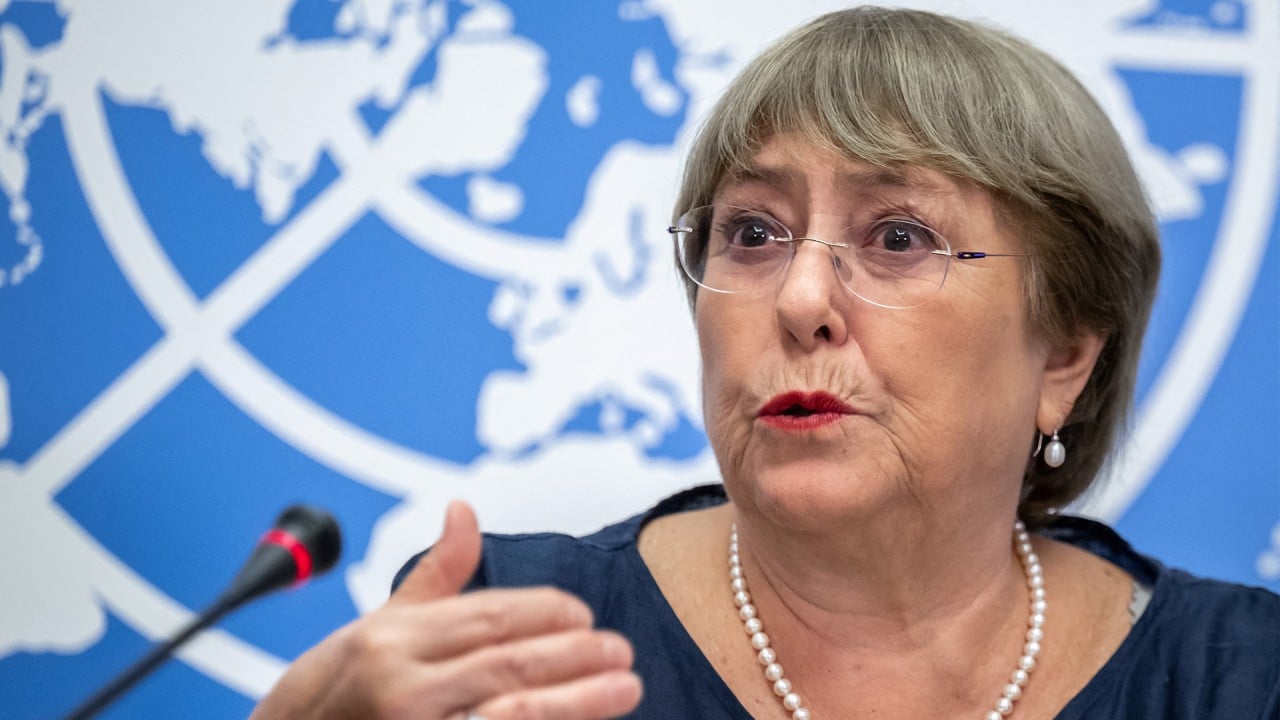
Countries can follow ‘various paths’ on human rights, says Chinese President Xi Jinping
- Xi made the comments in a letter to a forum that heard some Western countries were acting like a ‘human rights teacher’ despite their own failings
- Delegates from Uzbekistan and Equatorial Guinea also praised Beijing’s record, but a UN representative warned of a growing threat to human rights defenders
Xi made his statement in a letter to a forum, attended by delegates from 58 countries and the United Nations and African Union, to mark the 30th anniversary of the Vienna Declaration and Programme of Action, a UN document promoting human rights.
China faces EU criticism over treatment of Uygurs as human rights talks resume
In the letter, Xi said that “global human rights governance is facing serious challenges” and that China is following “a path of human rights development that suits its own national conditions”.
“[We advocate] guaranteeing the equitable enjoyment of human rights by all peoples through various paths of modernisation,” Xi said.
“China stands for advancing human rights with cooperation in the spirit of mutual respect and equality, putting into action the Global Civilisation Initiative, and deepening exchanges and mutual learning among civilisations,” Xi added.
Xi’s congratulatory message was read by Li Shulei, a member of the policymaking Politburo and head of the Communist Party’s publicity department.
The event was jointly organised by the State Council Information Office, the Ministry of Foreign Affairs and the China International Development Cooperation Agency, which is responsible for the country’s foreign aid.
The forum came at a time when Xi and his leadership are seeking to gain a louder voice on human rights issues and China faces criticism by Western countries, especially the United States, for its actions in Xinjiang and Hong Kong and its treatment of dissidents.
Vice foreign minister Ma Zhaoxu, told the event that “China will surely make greater contributions to global human rights governance”.
Without naming them, Ma criticised some Western countries, saying they “ignore their own serious human rights problems and go around as if they are human rights teachers, making false accusations against other countries, interfering in the internal affairs of other countries and curbing other countries’ development.”
Ma also said: “Blindly copying other countries’ models will only make them unsuitable and even lead to disastrous consequences.”
Luo Zhaohui, director of the China International Development Cooperation Agency, told the event that China’s contribution to global human rights included providing food and humanitarian relief to other developing countries.
In the lectures that followed the opening speeches, some academics from China and abroad also spoke highly of the country’s efforts to promote human rights.
However, Veronica Birga, chief of staff of the office of the UN High Commissioner for Human Rights, did not follow her fellow speakers in praising China.
UN human rights chief Bachelet says no to second term, ‘not related’ to China
Instead, she told the event that “an increasing number of states are resorting to measures to suppress dissenting voices and opinions, including threats, intimidation, violence, and criminal procedures against journalists and human rights defenders”, concluding with a call for “a new worldwide consensus on human rights”.


